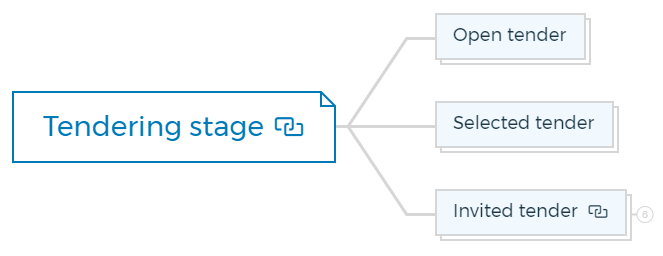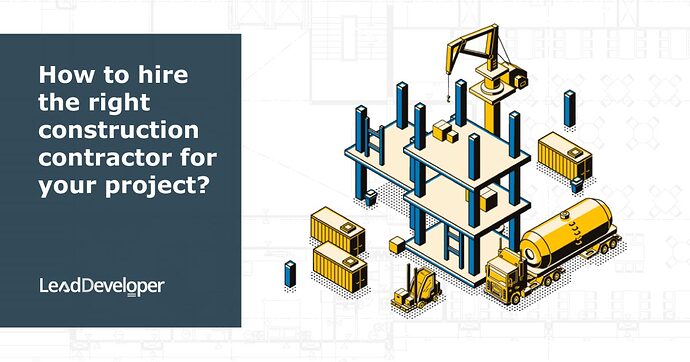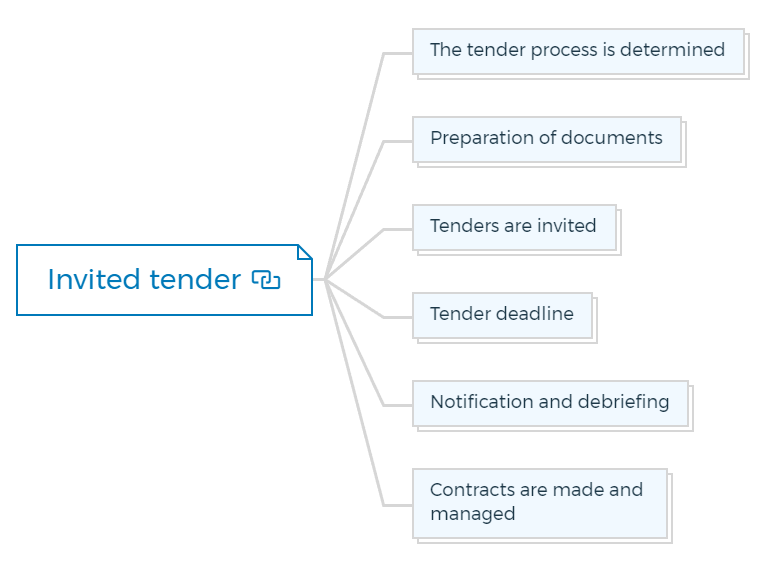Continued from…
Choosing the Best Construction Contractor - Guide
Construction Tendering Process
Tendering stage
Tendering is a better way to achieve the best pricing for a project than negotiating a contract. Tendering is the process by which interested parties submit an offer, bid, proposal, or show interest in response to a tender invitation or request.
Developers will look for construction building contractors to respond to their unique property development or building, and they will choose the offer or tender that best fits their needs and offers the best value for money.
Tenders can be offered using the following channels:
- Expressions of interest (EOI): Used to narrow down potential contractors before requesting formal proposals.
- Request for information (RFI): Used to help define the project during the planning stage, but not pick vendors.
- Request for proposal (RFP): A creative or flexible solution is required when the project criteria are known.
- A request for tender (RFT): A public advertisement invites all contractors to submit a bid.
Tenders are divided into three categories:

Open tender
An open tender is a public advertisement that invites people to bid on a project. Contractors must submit all required information and be evaluated against the given selection criteria. There are no restrictions on who can offer a tender.
You are missing out if you haven’t yet subscribed to our YouTube channel.
Selected tender
One that is only open to a limited number of contractors. Contractors are chosen through an open tender or the architect or project manager’s suggestion.
Invited tender
The developer personally approaches a small number of contractors and asks them to complete the contract. It’s usually reserved for specialised labour, emergency scenarios, low-value, low-risk, and off-the-shelf alternatives.
The tendering process is divided into six steps:
The tender process is determined
The sort of tender to be used and what will be engaged in the tender process will be determined by the developer and development team requesting the tender.
How To Finance Your Property Development Project?
And Other Books On Real Estate Development Finance
Includes 5 x detailed eBooks
✓ Property Development Finance: Easily Finance Your Project? (26 Pages)
✓ 10 Big (Financial) Property Investing Mistakes Made By Investors (58 Pages)
✓ 10 Finance Options For Your Next Property Development Project (29 Pages)
✓ What Is Equity Finance And How Does It Work? (42 Pages)
✓ Property Investment Finance - Ultimate Guide
Preparation of documents
The designs and specifications and the contractual terms and conditions, and how the tenderer should reply are all included in the tender documents.
Tenders are invited
The developer and architect should agree on which contractors will be asked to submit tenders.
Tender deadline
The tender documents specify a deadline by which all tenders must be delivered, and any late tenders are rejected. The tender prices are usually readout, depending on the type of tender.
Notification and debriefing
After a contract has been granted, the winning tenderer will be notified in writing. Tenderers who were unsuccessful are also informed of the outcome.
Contracts are made and managed
Once the developer is satisfied with everything, the construction building contract is placed. Before work begins on-site, there is a need to sign a contract document.
Bottom line
Depending on the contractor chosen for the project, the construction process can be pleasurable or a nightmare. When a problem arises on the job, a positive contractor will look for a solution.
Still, a litigious contractor may submit a low tender price to obtain the job and then try to make ground through changes or delays. It is preferable to avoid the latter sort of contractor, which can be accomplished by following the steps outlined in this article for selecting a contractor.
Achieve success in your first or next property development project through these structured property development courses.
FAQs
How do I find a reputable contractor in my area?
Start by asking around for recommendations from family and friends. Once you’ve gathered a few names, do some online research to see if any of the contractors have been sued or have had complaints filed against them.
Finally, be sure to get quotes from several different contractors before making a final decision. Be sure to read the fine print before signing any contracts, and make sure you understand what is included in the work that will be done. Choosing a reputable contractor is an important decision, so take your time and do your homework before making a final choice.
What are the tips to negotiate with a construction contractor?
- Know what you want and be clear about it.
- Be reasonable in your requests - don’t ask for something that’s out of the contractor’s budget or scope of work.
- Don’t be afraid to bargain - the contractor may be willing to come down on price if they know you’re serious about hiring them.
- Remain calm and professional throughout the negotiations - raising your voice or becoming angry will only make things more difficult.
- Have a backup plan in case negotiations fall through - this could mean finding another contractor or postponing the project altogether.
Why should you hire a construction contractor?
Hiring a contractor is the best way to ensure that your property development project will be completed on time, within budget, and to your satisfaction. A qualified contractor will have the experience and expertise to handle every aspect of the project, from obtaining permits and ordering materials to arranging for subcontractors.
Plus, a good contractor will keep you informed about the progress of the project and will work with you to resolve any problems that may arise. By hiring a contractor, you can rest assured that your property development project will be handled professionally from start to finish.






